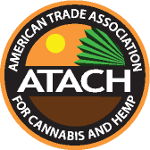Oklahoma
- Overview of Cannabis and Hemp Laws
Cannabis:
- Recreational Use: Recreational cannabis remains illegal in Oklahoma, with possession treated as a criminal offense.
- Medical Use: Legalized in 2018 through State Question 788, allowing individuals with a state-issued license to possess cannabis for medical purposes (Oklahoma Statutes Title 63, Section 420A).
Hemp Intoxicants and Synthetic THC: Oklahoma is classified as Unregulated/Gray Market, allowing hemp products without specific regulation of intoxicating cannabinoids like delta-8 THC.
- Historical Context
- 1930s: Cannabis prohibition follows national trends.
- 2018: State Question 788 establishes a medical cannabis program with minimal qualifying conditions.
- 2019: Hemp cultivation is legalized for research under the Industrial Hemp Agricultural Pilot Program.
- Recreational Cannabis Laws
- Possession Limits: Unauthorized cannabis possession is a misdemeanor, with fines and possible jail time. Possession with intent to distribute is a felony.
- Cultivation: Unauthorized cultivation is prohibited. Licensed medical patients may cultivate up to six mature plants and six seedlings.
- Public Use: Public cannabis consumption is banned, restricted to private residences.
- Sale and Retail: Recreational cannabis sales are not permitted; only licensed medical dispensaries operate legally.
- Medical Cannabis Laws
- Patient Eligibility: There are no specific qualifying conditions; a doctor’s recommendation is sufficient.
- Product Access: Licensed dispensaries offer a range of products, including oils, edibles, and flower.
- Program Details: Patients obtain a medical card through the Oklahoma Medical Marijuana Authority (OMMA), permitting them to purchase up to 3 ounces of cannabis, 1 ounce of concentrate, and 72 ounces of edibles.
- Hemp-Derived Intoxicants
- Regulatory Status: Oklahoma’s Unregulated/Gray Market status means delta-8 THC and other hemp intoxicants lack targeted regulations.
- Testing and Labeling: There are no mandated testing or labeling standards for intoxicating hemp products.
- Age and Retail Restrictions: No state-imposed age restrictions apply, technically allowing sales to minors in the absence of specific regulations.
- Criminal Penalties for Cannabis Offenses
- Possession: Personal possession without a medical card is a misdemeanor, punishable by a fine up to $1,000 or up to one year in jail for a first offense.
- Sale and Distribution: Unauthorized cannabis sale or distribution is a felony, with severe penalties, including high fines and prison terms.
- Trafficking and Cultivation: Large-scale trafficking and unauthorized cultivation are felonies, with escalating penalties based on the offense and plant quantity.
- Social Equity Programs
- Eligibility Criteria: Oklahoma does not currently have social equity programs related to cannabis.
- Licensing Benefits: No licensing incentives, fee reductions, or priority application processes are available for social equity applicants.
- Additional Support: Oklahoma offers no state-sponsored funding, training, or additional resources for social equity within the cannabis industry.
- Business Types and Operations
- Licensing Types: Oklahoma licenses medical cannabis businesses, including dispensaries, cultivators, processors, and transporters, provided they meet basic regulatory requirements.
- Regulatory Requirements: Medical cannabis businesses must comply with OMMA regulations, covering security, record-keeping, and operational standards. Oversight for intoxicating hemp products is minimal.
